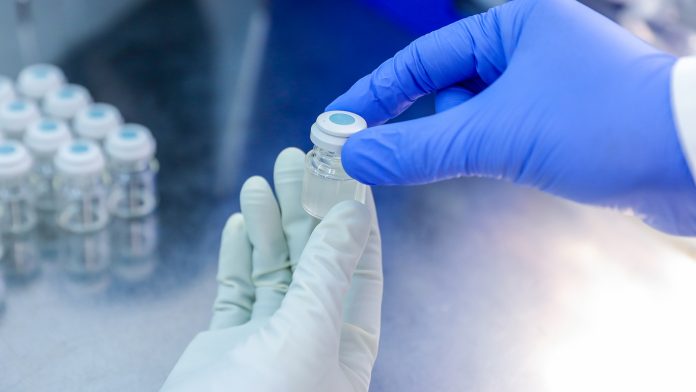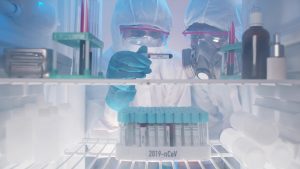
Dr Nenad Miljković from the European Association of Hospital Pharmacists (EAHP) outlines the critical role of cold chain storage in maintaining the efficacy and safety of vaccines.
Hospital pharmacists play a critical role in the procurement, storage, handling, and transportation of vaccines for healthcare system settings, responding to their unique nature and requirements to secure cold chain management throughout the overall supply chain. Collaboration with all supply chain stakeholders is needed to assure a reliable path for vaccines from the point of production to the point of administration. Moreover, advancing cold chain management is essential to assure the integrity of the cold chain and provide an environment where temperature control standards may be followed strictly, which allows for using vaccines in a safe and effective manner.
The effectiveness of a vaccine depends upon the cold chain
Throughout the COVID-19 pandemic, the topic of vaccination has received a lot of attention. For the European Association of Hospital Pharmacists (EAHP) and its full members located in 35 different European countries, the use of vaccines has always been paramount for protecting the health of patients, hospital pharmacists, other healthcare professionals and citizens. Like any medicine, vaccines have benefits and risks. Although highly effective, no vaccine is one hundred per cent effective in preventing disease or one hundred per cent safe for all vaccinated people. Effectiveness in an individual depends on several factors, including age, other diseases or conditions that an individual might have, such as allergies, or previous contact with the disease. On the other hand, the effectiveness of vaccines also depends, on how properly their integrity is kept throughout the cold chain. Failure to handle and store vaccines properly can reduce their potency, resulting in inadequate immune responses in patients and poor protection against disease, all outcomes that hospital pharmacists together with their colleagues in the multidisciplinary healthcare team want to avoid at all costs.
The manufacturing processes of vaccines provides challenges

One of the first steps in detecting potential temperature variations, which may affect the intended efficiency of vaccines, is to carry out the assessment of risks identified throughout all stages of the supply chain
Challenges with securing the cold chain commence within the manufacturing processes of vaccines, where the time delay between processing and packing may vary and pose a risk to vaccines’ integrity. Following manufacturing guidelines, stakeholders involved in the transport and distribution of vaccines should assure that the cold chain is ceaseless, regardless of numerous transportation segments. If carried out improperly, loading and unloading of vaccines, together with environmental temperature variations consequently lead to vaccine degradation. Furthermore, improper placement of sensors on transportation boxes and inappropriate monitoring influence temperature control and additionally accelerates a loss of vaccine potency. When delivered to a healthcare setting, handling and storing vaccines represent two major challenges in securing the cold chain. Depending on how vaccines are placed in the refrigerator, obstruction of cool airflow may occur due to freezer overcrowding, leading to not sufficient and constant cooling of vaccines. Moreover, environmental conditions bear additional risks to vaccines’ integrity if ambient high or low-temperature conditions affect temperatures obtained within the cold chain. Therefore, robust storage and inventory management procedures are of the essence to decrease the risks of temperature fluctuations.
Ensuring the effectiveness of vaccines
To minimise risks and to ensure the effectiveness of vaccines, storage and transport should be carried out in accordance with the recommendations of the manufacturer. Different types of vaccines exist which means not all storage and transport conditions are alike. Vaccines that are sensitive to freezing should be kept at temperatures ranging between 2°C and 8°C. Those that contain viral and/or lyophilized strains can be stored at temperatures between minus 15°C and -25°C. Messenger RNA vaccines (mRNA) that have been developed by some manufacturers against the coronavirus required in the past even lower temperatures. In case of wrong storage or incorrect handling of the vaccine, steps need to be taken. The involvement of healthcare professionals is crucial since they are trained in the processing of vaccines. Common errors include storing vials loosely and not respecting instructions. Hospital pharmacists can help with preventing these errors by storing each type of vaccine or diluent in its original packaging and a separate container. Other functions they carry out cover the regular monitoring of storage equipment to identify temperature excursions quickly to guarantee the viability of vaccine supply and the safety of patients.
One of the first steps in detecting potential temperature variations, which may affect the intended efficiency of vaccines, is to carry out the assessment of risks identified throughout all stages of the supply chain, including storing after manufacturing, sales and procurement, transport and finally storage and use in a healthcare facility. These risks may be identified through process analysis, such as failure mode and effect analysis (FMEA), intended to detect steps in handling vaccines with the greatest potential for a failure to occur, consequently influencing vaccine stability and integrity. Detected risks should be proactively considered within a wider framework of quality control and management in a healthcare setting, along with a retrospective overview of previously detected risks in handling vaccines within the cold chain. When detected, mitigating, controlling and reducing risks become a priority. This can be achieved through setting up processes based on standard operating procedures and protocols, as well as through additional training and education on how to monitor temperature, conduct accurate inventory management and respond to any temperature deviations, which may lead to patients not receiving their vaccines, or being administered less effective vaccines.

Tracking temperature variations, well recorded, transparent and available to all interested parties will increase trust and confidence among stakeholders and allow for more advanced data analysis
Healthcare facilities should have a plan on how frequently the temperature should be monitored, avoiding unnecessary freezing of vaccines, which should not be frozen, or exposing them to elevated temperatures. The most precise temperature tracking is done via digital data logger technology, which stores and records temperature electronic readings from a refrigerator/cold room throughout the entire cold chain. Reviewing temperature records is also important to record trends and deviations and detect failures on time. Good logistics are not only needed throughout the transport process but also at the point of administration. On the one hand, they are relevant for record-keeping and tracking vaccines and are crucial for coordinating re-vaccination intervals. Data collection which links persons receiving vaccines with the information on the dose and the type of vaccine is important for monitoring pharmacovigilance and adherence as well as for other purposes such as batch-level registration for side effects monitoring and re-calls. Databases that store this type of information should interlink with existing systems used in the hospital and community setting. Vaccination records should be an integral part of the medication record, so they can be used throughout the healthcare system. The record-keeping process can be facilitated by the use of scannable codes on the primary packaging. This is particularly indispensable for mass vaccination campaigns during which many vaccine doses are administered to different groups of individuals within a vaccination centre or another location handling the vaccination process. Tracking which person receives which vaccine is pivotal for the COVID-19 vaccination campaigns since different products, requiring in some cases the administration of a second dose, are used throughout Europe. For two-dose vaccines, good logistics are thus essential to streamline the invitation messaging to the vaccine recipients and the arrangements within distribution points.
Challenges with preserving the cold chain still occur
During the previous three years of the global pandemic, healthcare systems across the world suffered and at the same time received significant investments dedicated to securing cold chain infrastructure. On the other hand, the pharmaceutical industry and wholesalers worked on improving the stability, transportation, storage and handling of vaccines. Nevertheless, it seems that a collaborative approach among all stakeholders involved in the vaccine supply chain is missing, as challenges with preserving the cold chain intact still occur. One of the possibilities to address these challenges is to use available advanced technology fully integrated into healthcare systems monitoring processes. Tracking temperature variations, well recorded, transparent and available to all interested parties will increase trust and confidence among stakeholders and allow for more advanced data analysis, which may facilitate the prediction of future temperature fluctuations. Hospital pharmacists are in a unique position to bring expertise and leadership in improving cold chain management and reducing risk to patients and healthcare systems originating from vaccine mishandling.
Dr Nenad Miljković
Director of Finance
European Association of Hospital Pharmacists (EAHP)
https://www.eahp.eu/
https://be.linkedin.com/company/the-european-association-of-hospital-pharmacists
https://en-gb.facebook.com/eahp.eu/
https://m.youtube.com/c/EuropeanAssociationofHospitalPharmacistEAHP
This article is from issue 25 of Health Europa Quarterly. Click here to get your free subscription today.










